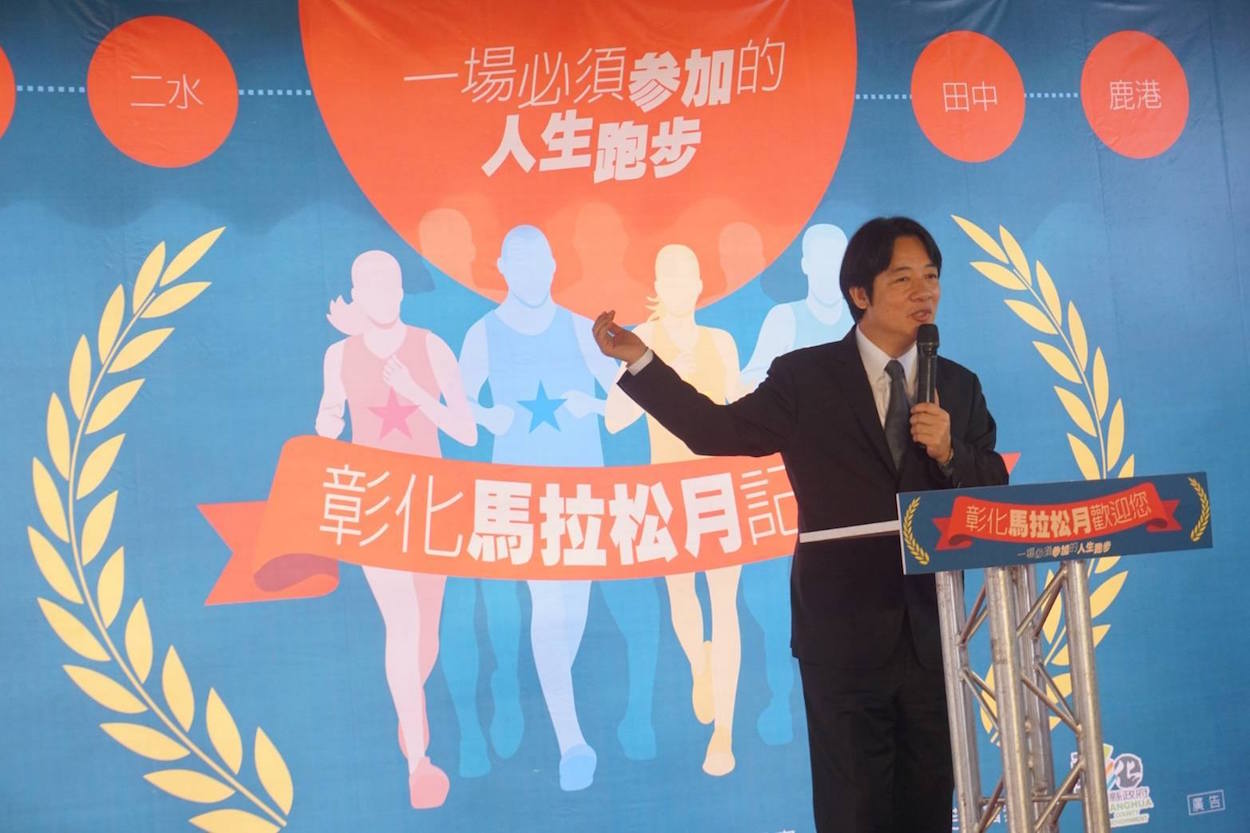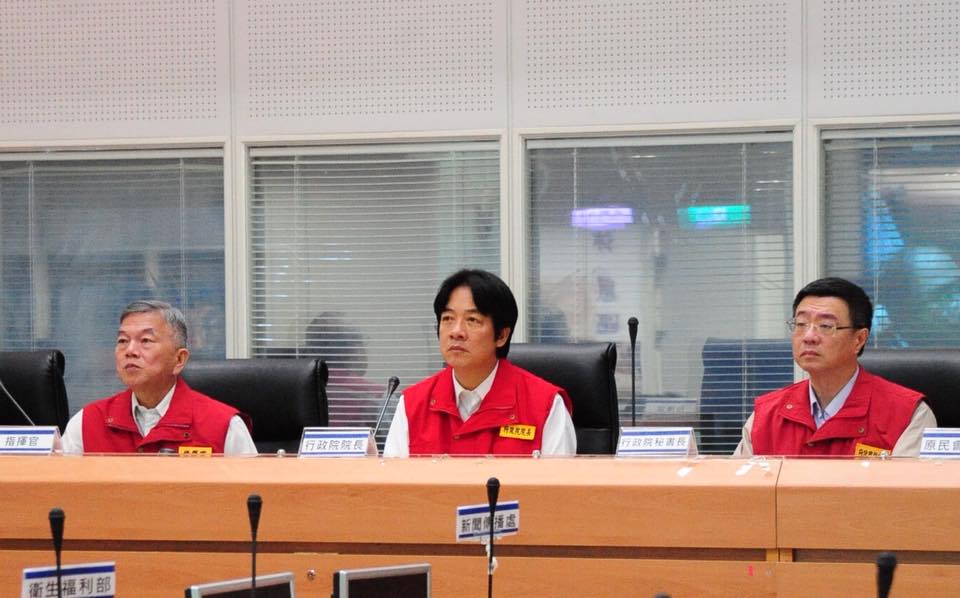by Brian Hioe
語言:
English
Photo Credit: William Lai/Facebook
ONE OF THE ironies of William Lai taking power as premier in September would be that, as one of the most popular politicians in Taiwan, it will be a question going forward if luster attached to Lai’s name will last. Although Lai likely remains one of Taiwan’s most popular politicians, this would be the realities of taking power on the national stage and not merely as a local politician.
Personality cults often prevail in Taiwanese politics, with rising politicians becoming the object of much public adulation. But even when politicians as popular as Lai reverse course politically, this does not go unnoticed by the public. And, as premier, Lai would be called on to take political hits for Tsai Ing-Wen in terms of defending her policies.
 Photo credit: William Lai/Facebook
Photo credit: William Lai/Facebook
This is particularly true of Lai, whose reputation in Tainan was built on his willingness to rock established institutions of government, but whose reputation outside of Tainan had also been highly built on his support of Taiwanese independence. Lai’s popularity in Tainan likely reflects the desire of the Taiwanese public to see high-level government politicians who express support of Taiwanese independence, but combine this with able governance, or seem to be able to articulate Taiwanese independence as a politically rational position.
But, as seen in Lai’s rapid reversal on at least the issue of Taiwanese independence, politicians themselves may only embrace Taiwanese independence or other radical political positions in order to win over voters. Namely, despite acquiring a reputation for outspokenness in past years as a politician unafraid to directly express support of Taiwanese independence, Lai reversed course once taking office, by claiming that there was no need for Taiwan to declare independence because it is already an independent country by the name of the Republic of China. Even if international news coverage mangled this, continuing to assert that Lai was a diehard pro-Taiwanese independence politician and Lai himself continued to claim that this position was support of Taiwanese independence, seeing as this is closer to the position of ROC independence than Taiwanese independence, this was understood as a reversal of course by Lai in Taiwan.
When a politician as Lai rises to the national stage, Taiwanese independence or other radical positions disruptive of the status quo which won him popularity with voters may be among the first political positions to be discarded. Along such lines, it remains to be seen whether Lai will rapidly shed other political positions which constituted core parts of the political identity he was previously known for.
Whether the DPP should drop the Taiwanese independence clause in its charter has been a matter of debate in recent years, the DPP having in reality long since ceased to openly advocate for Taiwanese independence. William Lai’s reversal of course perhaps offers a bellwether for the DPP’s future course as a whole, seeing as he was one of the politicians in the DPP which retained open advocacy of Taiwanese independence. Indeed, along those lines, Lai’s dropping of the position of Taiwanese independence once having reached national-level politics is reflective of the DPP’s political trajectory as a whole in past years.
 Photo credit: William Lai/Facebook
Photo credit: William Lai/Facebook
But recent times have seen the tainting of many of the rising stars of Taiwanese politics due to reversals of course, particularly on their China policy. Taipei mayor Ko Wen-Je, who rode into power on the basis of youth support following the Sunflower Movement with the perception that he would be a pro-Taiwan political candidate and enjoyed a period as one of Taiwan’s most popular politicians following the success of the Taipei 2017 Summer Universiade despite fluctuating approval ratings in past years, has also had his reputation permanently damaged following attacks on pro-independence demonstrators by gangsters with ties to pro-China groups at the Sing! China event organized by the Taipei city government. The Sing! China event came out of city-level exchanges that Ko has engaged in with Shanghai in past years, but apart from the fact that Taiwan was not allowed to be referred to as “Taiwan” at an event which took place on Taiwanese soil, Ko continued to defend the event even after violent attacks by pro-China gangsters and suspiciously lax action by Taipei police.
As such, based on the shifting political fortunes of Lai and Ko, it may be that the easiest way for rising politicians in Taiwan to damage their political fortunes is to reverse course on views regarding to Taiwan’s relation to China. Although certainly far from as a severe, as with Ko, one wonders whether Lai is misreading current political trends in Taiwan at present with his shift in political positions. And, again, in general, one wonders if Lai will be willing to compromise on other parts of his political views, which would lead to public backlash. At present, Lai maintains a respectable approval rating of close to 70%, but whether this last remains to be seen.

